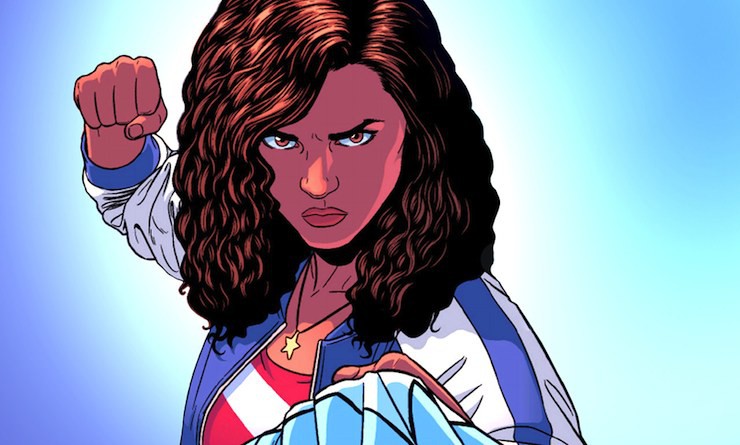In 2015, superhero enthusiasts were treated to not one, not two, but three amazing shows that followed the adventures of female heroes: Agent Carter, Supergirl, and Jessica Jones. Not only do these shows feature new and interesting aspects of their respective cinematic universes, but each show explored, and continues to explore, the unique and often heartbreaking societal struggles that women face in the present day and beyond. These shows say something about the world while simultaneously depicting heroes saving the world.
And we want more! While these three shows are a fantastic start, they’re still only chronicling the perspectives of white women, and there are so many stories outside of that perspective that have yet to be told in superhero-centered television.
Here’s a list of nine non-white female heroes we think should get their own TV shows. We know there are plenty of other worthy candidates out there, so add your picks in the comments!
Kamala Khan, a.k.a. Ms. Marvel
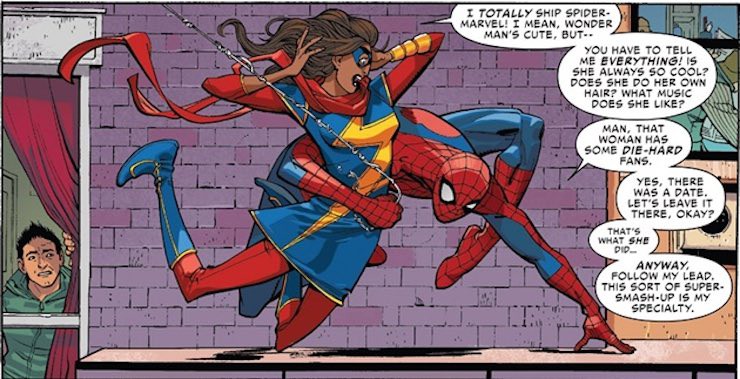
While we’ll be seeing her in animated form on Avengers Assemble, Kamala Khan has become such an overwhelmingly popular character in the past few years that she deserves her own live-action series, as well. What endears her to readers—and hopefully television viewers, too!—are the three Fs: family, faith, and fandom. Trying to keep her ability to stretchy/embiggening powers secret from her parents is usual superhero fare, but Kamala has the extra emotional strain of trying to be a good Muslim and a good daughter. And with fandom part of the mainstream, seeing someone like Kamala—with her hero worship of Captain Marvel and predilection for taking selfies with heroes like Wolverine—makes her even more relatable to teenagers who perform their fandom on Tumblr and other social media channels. Kamala begins her story as an outsider, as someone who wishes she could be like Captain Marvel. When her Inhuman powers transform her into a copy of her idol, she’s horrified. Over the course of G. Willow Wilson’s Ms. Marvel comic series, she grows to realize that what she really wants to be is herself—that’s the kind of arc that should play out on TV, as well. —Natalie Zutter
Raquel Ervin, a.k.a. Rocket (Milestone Comics)
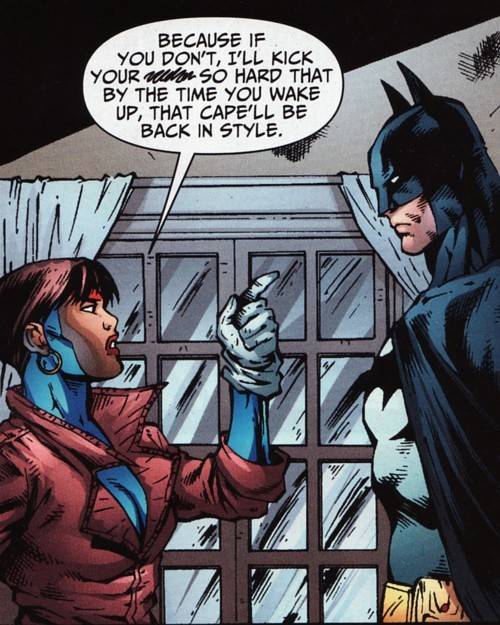
Rocket was a debut character in Milestone Comics, a new comics media universe distributed by DC in the 1990s with the intent of depicting black superheroes with a variety of different backgrounds. Characters from this line were folded into the DCU in 2008, more than ten years after Milestone shut down production, and have been appearing mostly in DC’s animated shows, like Young Justice, Brave and the Bold, and Justice League. These characters still exist on the periphery, however, and that’s a shame when you consider how DC could make an extremely interesting live-action show featuring the Milestone character Rocket.
In the comics, Rocket is a black teenager growing up in the poorest section of her city when she encounters Icon, the Superman-type hero of her world. The two of them end up inspiring each other to be better, to try harder, and Icon gifts Rocket with a kinetic belt so she can fight injustice alongside him. Icon isn’t perfect, though. He tends to want to solve problems with force when discussion would be more effective. As a person Icon trusts, Rocket often points this out and thus becomes a necessary corrective to the tremendous power that Icon represents. Her story presents a unique perspective on ideal superheroes, and it would be great to see a show where the “superman” is in the background, just another problem in the day-to-day life of the main character.
Rocket’s situation would also prompt a nuanced exploration of the societal expectation of women as caretakers. Not only does she act as Icon’s conscience at times, but her story begins with her pregnant with her teenage boyfriend’s child, adding another layer to the viewpoint of women as caretakers. Teen motherhood can be a complex and interesting situation to explore when it isn’t treated as a stigma. Doubly so when that mom is a superhero.
Rocket’s story tackles issues regarding class, gender, race, and supermen, all at the same time. Perfect in the current age of the serialized superhero. –Chris Lough
Mari Jiwe McCabe, a.k.a. Vixen
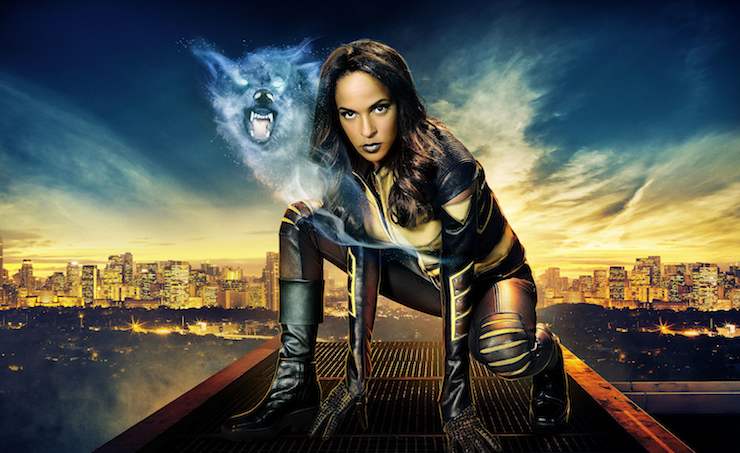
Mari McCabe is already stepping up in the DC TV-verse: Vixen was given her own animated streaming-only show on the CW, but the exciting news comes from Arrow—Megalyn Echikunwoke, who voices the character on the cartoon, will be making her first live action appearance as the character in the next month or so. (That’s her, pictured above!) Following that, could there be room for more live-action spots… and perhaps a shot at turning the cartoon into a live show? Has that ever even been done before? Normally it goes in the opposite direction. It would be amazing because Vixen is a character who was sidelined from her inception; intended as DC’s first African female superhero with her own series, her comic was instantly cancelled, and Vixen was relegated to team-up land. While there’s ample chance for the character to be rendered awkwardly (her powers are attained via a totem that allows her to assume the powers of any animal, so showrunners must take care to bypass the “noble savage” trope), Mari is a wonderfully no-nonsense hero who gets to play around with a set of really fun powers. –Emmet Asher-Perrin
America Chavez, a.k.a. Miss America
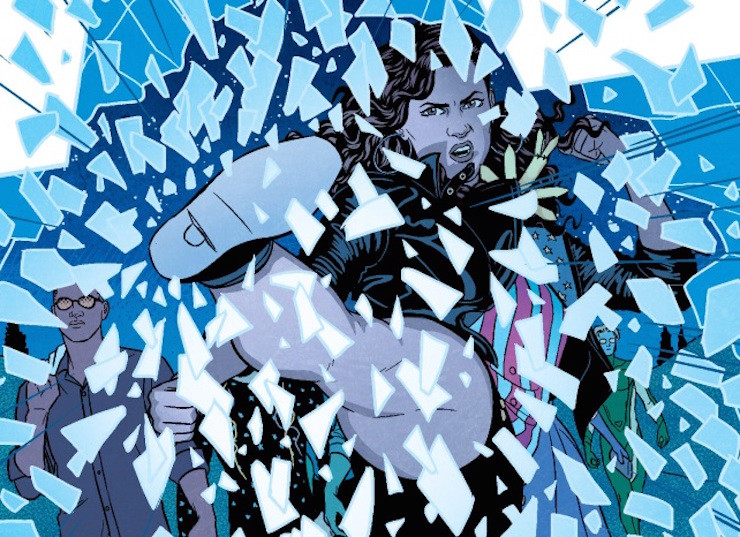
While superhero movies might be accused of taking themselves too seriously, television does not have that problem. And while we may be too fatigued with the big-screen Avengers to actually care that much about Captain America: Civil War, that actually provides the perfect boot-shaped hole for America Chavez to kick her way into the Marvel Cinematic Universe. She’s a queer Latina raised by two moms in the Utopian Parallel, who takes her heroic inspiration from their sacrifice and who uses violence when necessary without ever losing her cool. Most of all, despite taking her name from preexisting superheroes, she doesn’t actually care about the old guard. “You couldn’t pay me to be in the Avengers,” she famously scoffed in Kieron Gillen and Jamie McKelvie’s Young Avengers. So let’s not try to pigeonhole her! The best thing about America Chavez is that while she could kick her way into various multiverses and fit in with different groups, she’s still a standout. —Natalie Zutter
Maya Lopez, a.k.a. Echo/Ronin
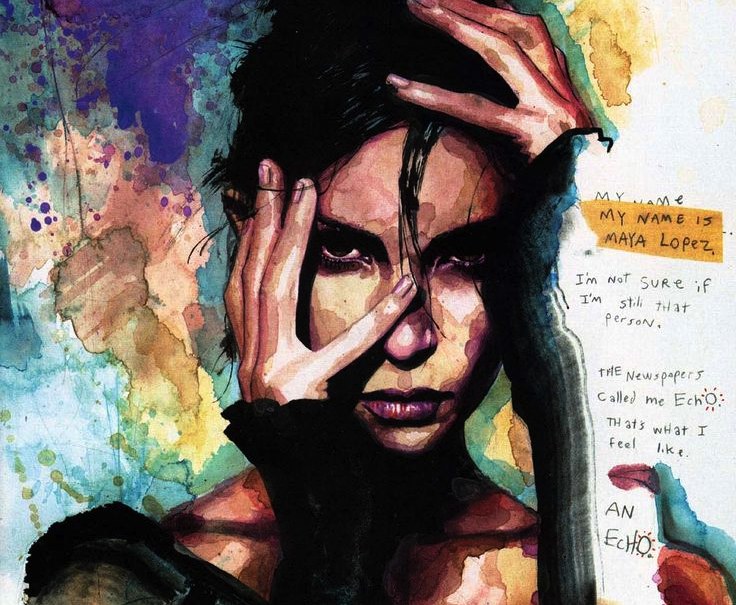
Maya Lopez is a deaf character of Cheyenne and Hispanic decent first introduced in the pages of Daredevil. It might seem gimmicky to pair her with the blind Matt Murdock, but the comics always treat Maya’s deafness seriously, and I’d love to see a respectful treatment done on screen, especially given the challenge of a central character who often relies on non-verbal (or at least non-spoken) communication. Although it would make the most sense to get Maya her own Netflix series to tie in with the current “street heroes” slate on Netflix, the reality is that her comics origin story is too similar to that of Elektra’s more well-known plot line—and Elektra already has a spot in Daredevil’s upcoming second season. Instead, I’d be interested to see Echo as more of an established superhero, perhaps more in line with her later alias, Ronin. As Ronin, Maya conceals her identity (and gender) beneath a more masculine costume and joins the Avengers, often fighting against super villain group The Hand. Coincidentally, The Hand maybe already sorta showed up in Daredevil’s first season (hi, Nobu!), so maybe they could find a place for Maya in that universe after all… –Sarah Tolf
Amanda Waller, a.k.a Amanda friggin’ Waller
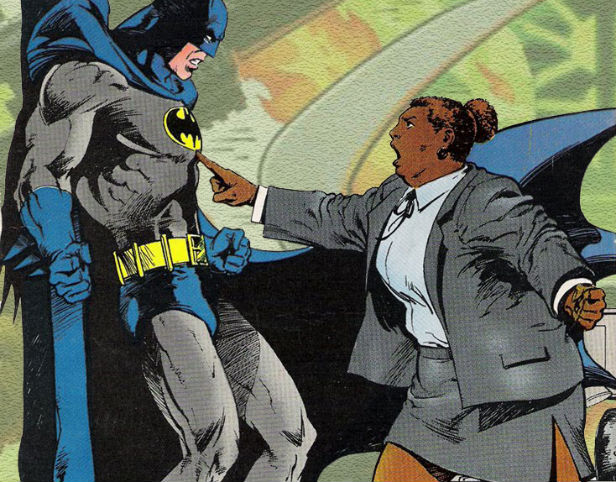
Amanda Waller makes her debut in the coming Suicide Squad film, and has already been seen in the Arrow-verse and seriously, any character who is so effective a puppetmaster that they can create the Suicide Squad with little more than blackmail and a steely gaze NEEDS her own show, post-haste. –Chris Lough
Renee Montoya, a.k.a. The Question
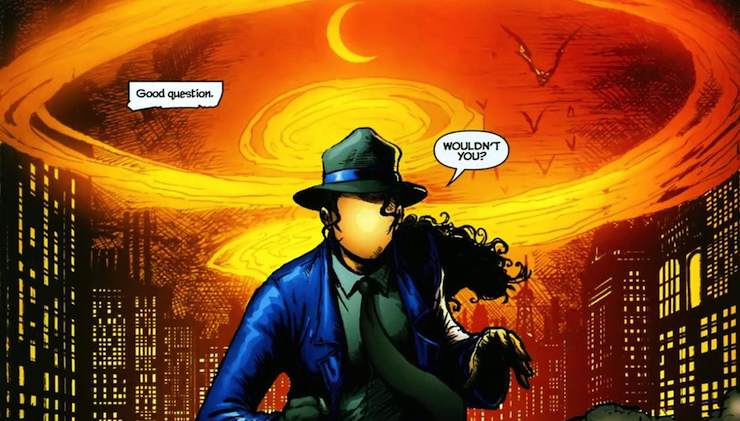
Renee Montoya is already on Gotham where she is woefully underused, and not particularly well-characterized. But forget all that—combining various aspects of Montoya’s tenure in comics would make for an excellent television show. Just forgo the “weekly cop show” trappings entirely, and start the narrative after Montoya has been outed as a lesbian by one of Gotham’s villains. Deal with the family difficulties this creates for her, and her withdrawal from the force. Then, up pops the Question! (Otherwise known as Vic Sage, otherwise known as ‘the character Rorshach was based on.’) He wants to train her to fight crime and find her true self. Montoya becomes the Question and later gets to date Batwoman. THIS WOULD BE THE BEST. Renee Montoya is the best, and starring in her own show after years of supporting on screen is honestly the least the universe could do. She’s funny, smart, and she gets the best costume. Give it. –Emmet Asher-Perrin
Jubilation Lee, a.k.a. Jubilee

Jubilee is a severely underutilized character, and for decades X-Men writers have struggled to get a handle on her. First she was a mall-rat (it was the late 1980s and Chris Claremont was operating at peak Chris Claremont), then she was Wolverine’s sidekick, then she was a slacker student, then a vampire, then a… mom? Okay.
The thing is, Jubilee is already interesting without having to pile on vampirism or babies that are actually just plot devices. She’s the daughter of wealthy Chinese immigrants and is pushed into competitive gymnastics at an early age. Then her parents are murdered. THEN she finds out she’s a mutant. Although Jubilee is depicted as a self-possessed, happy-go-lucky teen, her background is fairly dramatic. For one, training for competitive gymnasts is a mentally and physically intense process to put a child through. This alone suggests there is a lot of material to be mined from how Jubilee’s parents treated her. Did Jubilee resent them? Does she feel guilty that they died with her resenting them?
Further, it would be interesting to explore how Jubilee’s privileged upbringing would affect her viewpoint of herself as a mutant. Would it reverse how she is viewed by society? Would that be a shock? Would she then become more aware of other stereotypes that Americans of Chinese descent are subject to? Finally, after all of this, what prompts her to want to be supportive and bright and outgoing? And how might that change once she grows out of her teen years and starts being a 20-something that needs a job, and a roommate, and…?
I think there’s a real opportunity through Jubilee’s story to depict how the current generation of young people (millennials, or whatever’s coming next) would react to having superpowers, and how those powers would play into the reversals of class, race, and fortune that this generation is currently experiencing. Taking Jubilee seriously would bring some hefty dramatic rewards for television viewers. It would also probably be a pretty funny superhero show. –Chris Lough
Ororo Munroe, a.k.a. Storm
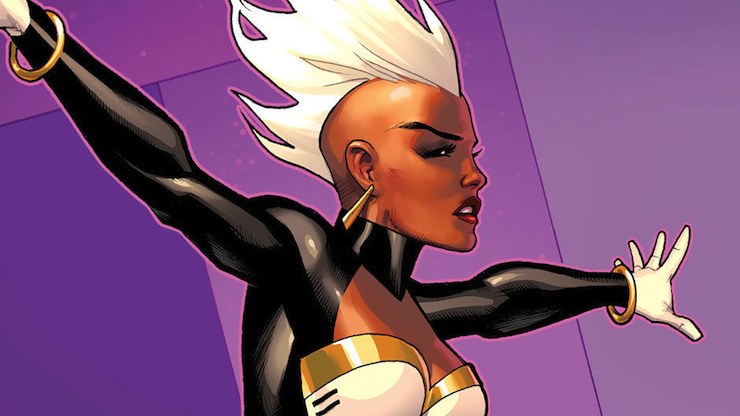
You know the main thing that has always sucked about the X-Men movies? A severe lack of Storm. While this was arguably due to miscasting, it doesn’t make the slight any less prominent. To spend so much time watching Wolverine cry about Jean Grey when we could have been watching Storm rule the freaking universe is tragic. Boo on Logan. Boo on Phoenix. Boo on Scott Summers weeping all the time. You could handle a Storm show so many different ways too, which makes the prospect of creating one even more fun—should it be a mutant school show? An X-team show? I know that Marvel can’t use the X-Men in the MCU, so maybe just do a cool throwback 80s show with mohawk Storm and all her punk mutants friends. Literally just call the show Storm and Friends. Make it a lighthearted spin-off of the current movies; they’re so sad that it would be a welcome reprieve from The Multi-Generational Love Story of Magento and Professor X any day of the week. –Emmet Asher-Perrin
This isn’t a complete list, obviously. (What about Swift? Or Nico and the Runaways? Or M? Or…) And there are even more examples here. But it is a reminder (perhaps to ourselves, most of all) that different perspectives on our world can result in fascinating stories and nuanced characters with wide appeal. A rising tide lifts all boats, and there’s so much more ocean out there…










